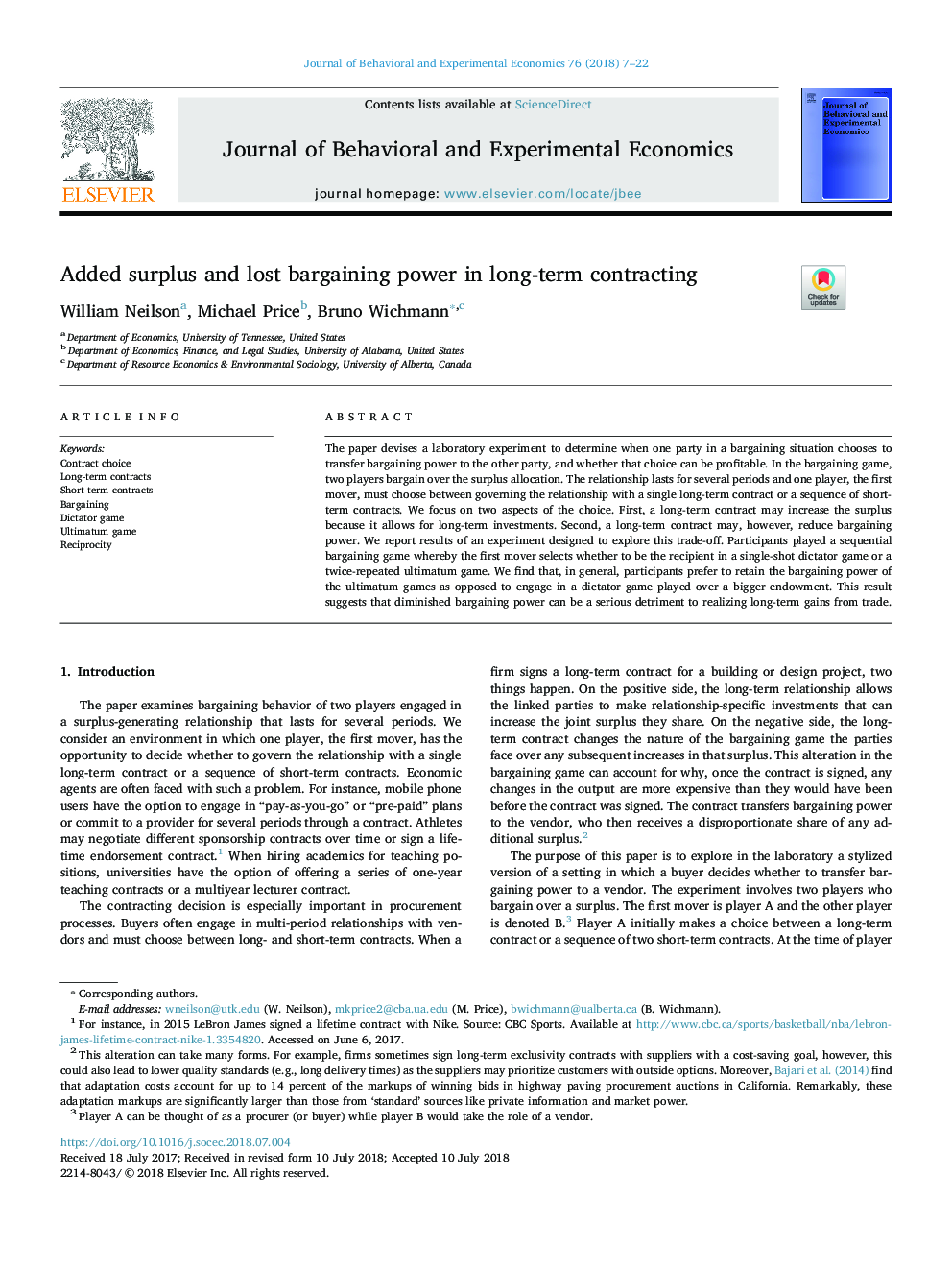| Article ID | Journal | Published Year | Pages | File Type |
|---|---|---|---|---|
| 7241909 | Journal of Behavioral and Experimental Economics | 2018 | 16 Pages |
Abstract
The paper devises a laboratory experiment to determine when one party in a bargaining situation chooses to transfer bargaining power to the other party, and whether that choice can be profitable. In the bargaining game, two players bargain over the surplus allocation. The relationship lasts for several periods and one player, the first mover, must choose between governing the relationship with a single long-term contract or a sequence of short-term contracts. We focus on two aspects of the choice. First, a long-term contract may increase the surplus because it allows for long-term investments. Second, a long-term contract may, however, reduce bargaining power. We report results of an experiment designed to explore this trade-off. Participants played a sequential bargaining game whereby the first mover selects whether to be the recipient in a single-shot dictator game or a twice-repeated ultimatum game. We find that, in general, participants prefer to retain the bargaining power of the ultimatum games as opposed to engage in a dictator game played over a bigger endowment. This result suggests that diminished bargaining power can be a serious detriment to realizing long-term gains from trade.
Related Topics
Social Sciences and Humanities
Economics, Econometrics and Finance
Economics and Econometrics
Authors
William Neilson, Michael Price, Bruno Wichmann,
